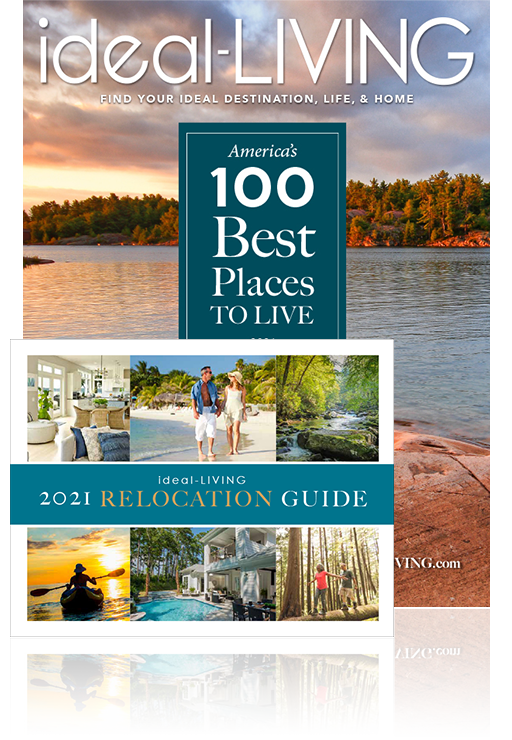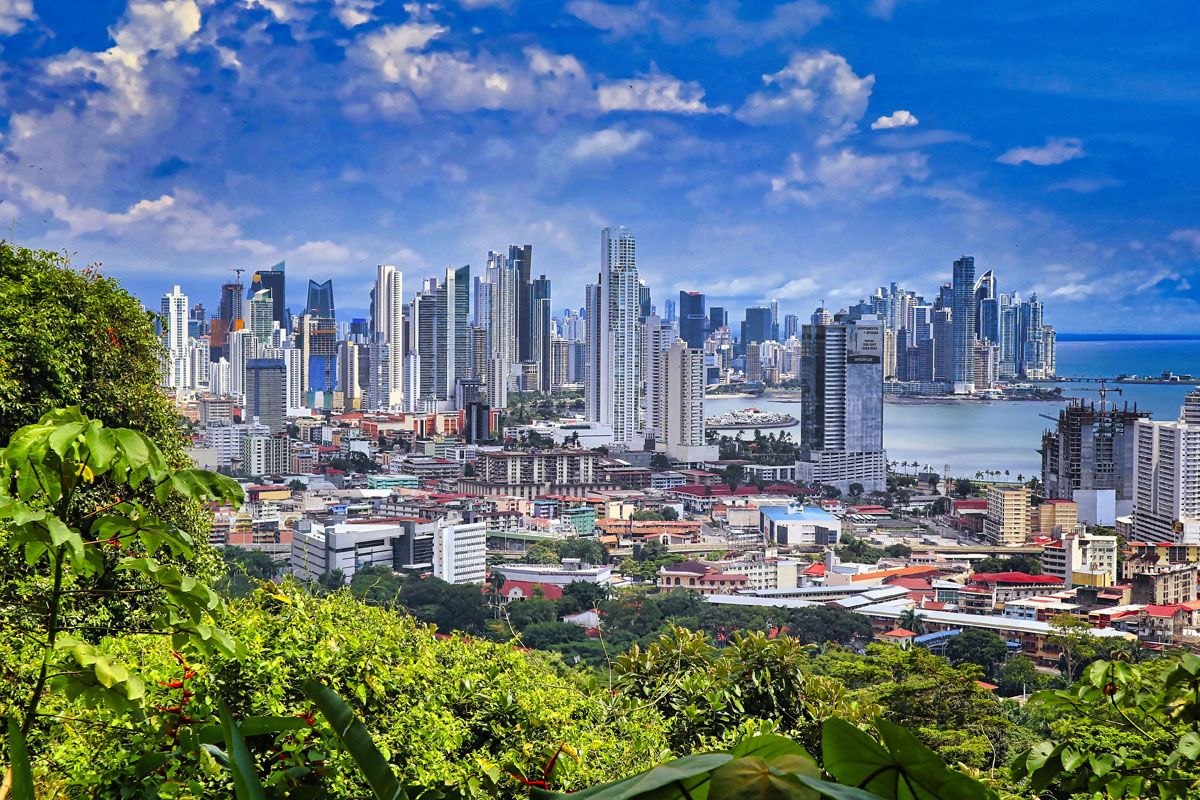Countries with the Best Healthcare for Retirees
Request Your Free Relocation Guide

Countries with the Best, Most Affordable Healthcare for Retirees
Retirement is not just about bidding farewell to the daily grind; it's about embracing a new chapter of life filled with possibilities and well-being. For many American retirees, this new chapter includes the pivotal decision to retire abroad, seeking destinations where the cost of living is balanced with quality healthcare that doesn't strain the retirement budget.
In an era where healthcare costs in the United States are a significant concern, the allure of retiring overseas has grown stronger. Countries around the globe are stepping up, showcasing their healthcare systems that not only meet but often exceed expectations, all at a fraction of U.S. costs. This guide is your passport to understanding which countries offer the best in healthcare affordability and quality, making them ideal choices for your retirement.
Whether you're drawn to the sandy beaches of Panama, the historic cities of Portugal, or the vibrant cultures of Malaysia, the world is brimming with destinations that promise retirees a blend of healthcare excellence and cost-effectiveness. Join us on a journey to explore these countries, understand their healthcare systems, and discover where you can enjoy your retirement years with peace of mind and wellness at the forefront.

Why Retirees Are Choosing Healthcare Abroad
In recent years, an increasing number of American retirees are looking beyond the borders of the United States for their golden years, and the allure of affordable healthcare is a significant draw. Let's delve into why overseas healthcare is becoming a preferred choice for retirees seeking quality and value.
- Financial Benefits: The promise of reduced healthcare costs without compromising on quality is a major incentive. Countries like Mexico, Portugal, and Panama offer healthcare services at a fraction of U.S. prices. This affordability allows retirees to allocate their funds to other aspects of their lifestyle, enhancing their overall retirement experience.
- Quality of Care: Contrary to common misconceptions, lower costs do not equate to lower quality. Many retirees find that healthcare services abroad often match or surpass U.S. standards, with modern facilities, English-speaking professionals, and cutting-edge treatments readily available.
- Accessibility: In many retiree-favored destinations, navigating the healthcare system is straightforward, with less red tape and shorter wait times for both routine and specialized care. This efficiency means retirees can enjoy a healthier, more active lifestyle with peace of mind.
- State-of-the-Art Facilities: From state-of-the-art hospitals in Singapore to renowned specialist clinics in Spain, the global healthcare landscape is equipped to cater to the diverse needs of the aging population. These facilities often boast international accreditations and partnerships with U.S. medical institutions, ensuring a high standard of care.
- A Holistic Approach: Beyond the medical benefits, retiring abroad offers a holistic improvement in quality of life. The combination of affordable living, vibrant expat communities, and the opportunity to immerse in new cultures makes the idea of healthcare abroad even more appealing.
In essence, the trend towards retiring abroad is not just about finding affordable healthcare; it's about embracing a comprehensive lifestyle change that offers enriching experiences, financial ease, and a sense of global belonging. For many retirees, the decision to move abroad is a step towards a fulfilling, carefree retirement journey.
Top Countries for Retiree Healthcare
When considering retirement abroad, healthcare is a critical factor. Many countries offer excellent healthcare systems that are both affordable and accessible, making them ideal destinations for retirees. Here's an overview of some top countries from The Commonwealth Fund’s 2021 report, renowned for their retiree-friendly healthcare systems.
Portugal

Portugal's healthcare system is distinguished by its high quality and affordability, making it a prime choice for expats and retirees. The country's National Health Service (SNS) provides residents with comprehensive care, and while public healthcare is robust, many retirees opt for private insurance to shorten wait times and access a broader range of services. With a life expectancy above the EU average and healthcare costs well below those in the U.S., Portugal offers a serene and healthy retirement setting.
Mexico
Retirees in Mexico can choose between public and private healthcare systems. The public system, while affordable, often has longer wait times, prompting many expats to opt for private care, which remains cost-effective compared to U.S. standards. With a growing number of hospitals accredited by international organizations, Mexico provides quality healthcare that is both accessible and affordable for retirees.

Malaysia

Malaysia's healthcare system is a standout in Southeast Asia, known for its modern facilities and English-speaking medical staff. The country offers a Malaysia My Second Home (MM2H) program, encouraging long-term stays for retirees, who often opt for private healthcare due to its high quality and low cost. Malaysia's hospitals, many of which are JCI-accredited, provide retirees with a range of medical services, making it a favored destination for health-conscious expats.
Spain
Spain's healthcare system is robust and well-regarded, offering an excellent standard of care, particularly in regions popular with expats. While public healthcare is available to residents, many retirees choose private insurance to access a wider network of specialists and reduce waiting times. The country's emphasis on preventive care and a healthy lifestyle aligns well with the needs of retirees seeking a balanced and enjoyable life abroad.

Panama

Panama is increasingly popular among retirees for its high-quality yet affordable healthcare. Panama City is home to internationally accredited hospitals, some of which are affiliated with prestigious U.S. medical institutions. The country's private healthcare system is preferred by many expats, offering advanced medical services at a fraction of U.S. prices. With a strategic location and a retiree-friendly visa program, Panama is an attractive destination for those prioritizing health in their retirement plans.
France
France's healthcare system is lauded for its efficiency and comprehensive coverage, offering retirees access to high-quality medical services. The system provides substantial coverage for long-term care, a significant consideration for retirees. While public healthcare is exemplary, some retirees choose supplementary private insurance for quicker access to specialists and additional comfort. France's commitment to healthcare excellence makes it a top choice for retirees seeking a blend of culture and wellness.

Planning Your Healthcare Abroad
When considering retirement overseas, one of the pivotal factors is ensuring you have access to excellent healthcare. Navigating the healthcare system in a new country can be daunting, but with the right preparation, you can enjoy your retirement with peace of mind. Here's how to plan your healthcare abroad effectively:
Research and Compare Healthcare Systems
Start by delving into the healthcare systems of the countries you're considering. Evaluate the quality of care, accessibility, and whether the country has a public or private healthcare system. Websites like the World Health Organization (WHO) and expat forums can provide valuable insights.
Understand Residency Requirements
Many countries offer access to their healthcare systems only to legal residents. Investigate the residency requirements and what healthcare benefits come with residency status. This information can typically be found on the country's embassy or healthcare ministry website.
Assess Insurance Options
Even if a country has an excellent public healthcare system, you might need or prefer to have private health insurance. Research the insurance options available, including international health insurance plans, which can offer comprehensive coverage and flexibility.
Factor in Out-of-Pocket Costs
While some countries boast affordable healthcare, out-of-pocket costs can vary. Understand the typical costs for regular check-ups, medications, emergency services, and long-term care in your chosen destination.
Plan for Medications
If you're on prescription medication, verify its availability and regulations in the destination country. Some medications may have different names abroad or require a local prescription.
Consider Language Barriers
Language can be a barrier in receiving care. Check if healthcare professionals in your chosen country typically speak English or if there are translation services available in healthcare settings.
Prepare Medical Records
Organize and translate your medical records before moving. Having a comprehensive medical history readily available can facilitate smoother interactions with healthcare providers abroad.
Emergency Planning
Understand the emergency services in your new home, including how to call for an ambulance and the location of the nearest hospital. Consider a medical alert service if you have ongoing health concerns.
Regular Health Check-ups
Once you're settled in, ensure you have a local doctor or healthcare provider for regular check-ups. Staying on top of your health can prevent minor issues from becoming major problems.
Stay Informed
Healthcare policies can change, so stay informed about any updates or reforms in your chosen country's healthcare system that might affect you.
By thoroughly researching and planning your healthcare abroad, you can ensure a seamless transition to your new life while safeguarding your most valuable asset—your health.
Integrating into Your New Home's Healthcare System
Adapting to a new healthcare system is a crucial step in your journey as an expatriate retiree. Understanding how to navigate the healthcare environment in your new home will help you access the care you need efficiently. Here's how you can integrate into your new home's healthcare system:
1. Register with Local Healthcare Authorities:
Upon obtaining residency, register with the local healthcare authority or system. This may involve obtaining a local healthcare card or number, which will grant you access to medical services.
2. Choose a Primary Care Provider:
Select a general practitioner or primary care provider who will be your first point of contact for health issues. They will guide you through the system, provide referrals, and ensure continuity of care.
3. Learn the Referral Process:
Understand how referrals work in your new country. Some healthcare systems require a referral from a primary care physician to see a specialist, while others allow you to book specialist appointments directly.
4. Familiarize Yourself with Local Pharmacies:
Get to know the pharmacies in your area and understand their processes for filling prescriptions. In some countries, medications that require prescriptions in your home country might be available over the counter and vice versa.
5. Navigate Health Insurance Claims:
If you have private health insurance, familiarize yourself with the claims process, including any pre-authorization requirements for procedures or hospital stays.
6. Understand Emergency Services:
Know how to access emergency medical services, including the local emergency phone numbers and the location of the nearest emergency department.
7. Connect with Expatriate Health Communities:
Join expatriate groups or forums where you can share experiences and get advice on navigating the healthcare system in your new country.
8. Maintain Communication with Health Providers Back Home:
If you're continuing treatments started in your home country, maintain communication with your previous healthcare providers to ensure a smooth transition.
9. Respect Local Healthcare Customs and Practices:
Healthcare practices can vary significantly from one country to another. Show respect for and adapt to the local customs and practices to build a positive relationship with healthcare providers.
10. Continuous Learning:
Healthcare systems can be dynamic, with new policies or procedures introduced over time. Stay informed about any changes that might affect your access to healthcare services.
By taking these steps, you'll be better prepared to utilize your new home's healthcare system effectively, ensuring you receive the care and support you need to enjoy your retirement abroad fully.
Frequently Asked Questions
Additional Resources for American Expats
Explore our extensive collection of guides, designed to offer you detailed insights into retiring abroad. These guides cover various aspects, from choosing the right country to understanding the nuances of international living.
- Complete Guide to Retiring Abroad
- Top 8 Best Expat Countries Around the World
- Guide to Tax-Free Retirement Countries
- Easiest Countries to Retire to Around the Globe
- Guide to International Taxes
- Guide to Social Security While Retiring Abroad
- Countries with the Best Health Insurance
- Best Countries to Retire Abroad for US Citizens
Start Your Retirement Journey with Ideal-Living
Start your journey into international retirement with ideal-Living. Utilize our rich resources and expert advice, and gain exclusive access to our quarterly magazine. Get your complimentary relocation guide today and step explore the possibilities for a vibrant retirement with Ideal-Living.
© 2024 ideal-LIVING Magazine • 265 Racine Dr #201 • Wilmington, NC 28403 • 910.763.2100
